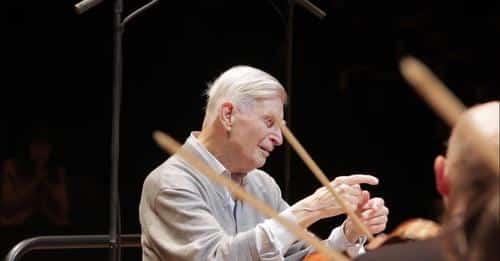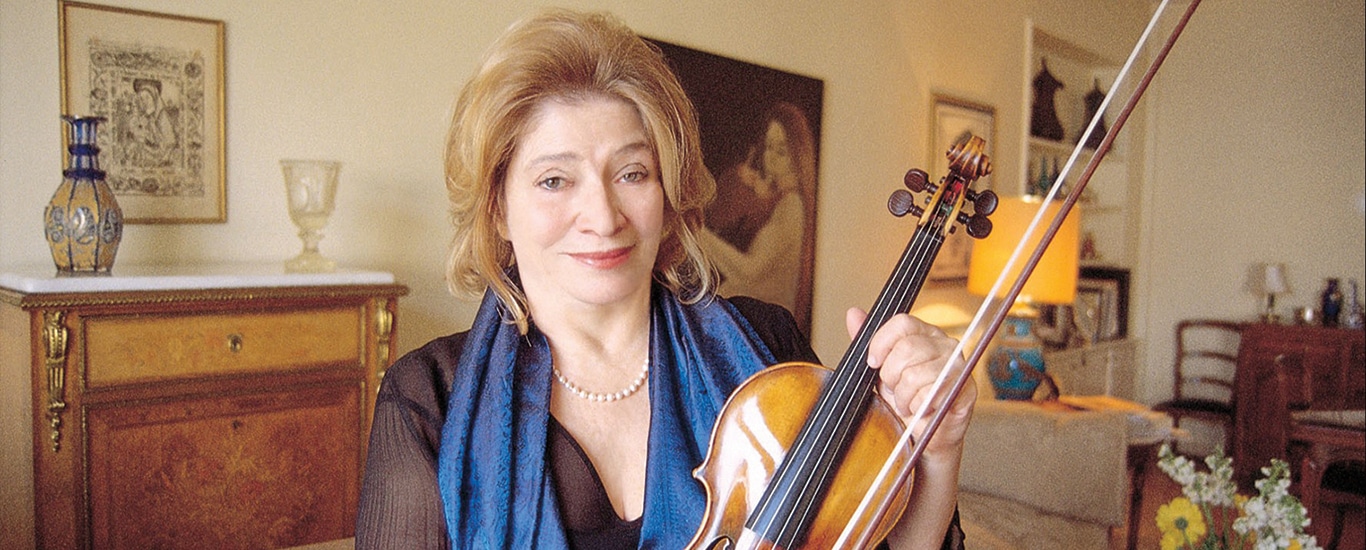Another US opera company shuts down
OperaAfter 22 years and hundreds of performances, Miami Lyric Opera has been liquidated.
Founder and general director Raffaele Cardone blames increased costs and lower donations.
He tells South Florida Classical Review:
‘The principal reason is financing—not enough being available to make a decent production. ‘/Venue, labor, musicians and artist costs and others, have all increased.’
He also said that he has been put off by the revisionist stagings that so many companies are now presenting. “I have a great respect for the opera as originally conceived and accept updates as far as staging technology,” he said. “Nevertheless, I cannot accept the new tendencies being pushed to the audience.”






No surprise. The same thing happened to the Florida Philharmonic which served the Miami and Dade Country area.
After a contentious strike in 2000, the Florida Philharmonic Orchestra was permanently closed due to bankruptcy in 2003. At the same time, one of the FPO’s board members, Daniel Lewis (a Cleveland native,) gave the Cleveland Orchestra a $10 million donation, the largest in its history. The $10 million could have kept the FPO going, but it was given to Cleveland instead. The Cleveland Orchestra was then given a permanent residency in Miami.
The Cleveland residency has made it impossible for the musicians of the FPO to reform their orchestra. Cleveland thus became a scab orchestra. The details of this sordid history are here:
http://en.wikipedia.org/wiki/Florida_Philharmonic_Orchestra
Eventually even the Cleveland scab model failed in Miami, a metro area of 5 million and one of the richest in the world.
I’ve noticed that numerous arts administrators are now talking about the Cleveland scab model becoming a new norm to help the big orchestras survive. Smaller local orchestras would be eliminated and big orchestras would serve several cities with sporadic concerts by poaching the local arts funding. If this happens it will be a major blow to classical music in America, because culture is by nature inherently local and locally based. Remember the Cleveland scabs.
Please explain why Cleveland having a residency prevents completely separate musicians from forming an alternative orchestra. How many performances does Cleveland give? Presumably there are plenty of other concert times and locations available. Money may be another matter, but the absence of money may not be due to the presence of Cleveland.
Many European cities have multiple orchestras, so you a certainly right from that perspective. But in the States, there is barely enough money for even one. The Cleveland residency, especially funded, however clandestinely, by a FPO board member, took away funding and was demoralizing. That $10 million could have kept the FPO going.
Here is a list of US orchestras that have declared bankruptcy during my career: San Diego, Miami, Kansas City, Albuquerque, Syracuse, Tulsa, San Antonio, New Orleans, Denver, San Jose, Colorado Springs, Honolulu, Miami, and Philadelphia. When they manage to return, they are often depleted and their musicians demoralized.
So why call the orchestra members “scabs” when your argument is where a rich guy directed his gift. And is he really an FPO board member if FPO is bankrupt and defunct? Maybe he found the leadership of the Cleveland orchestra more to his liking.
The FPO still existed when he gave his $10 million gift to Cleveland. If he had given it to the FPO, they would would have continued to exist. He shot down the FPO of which he was a board member because he did not like the efforts of its union.
And the Sacramento Symphony, too. That was a very good orchestra.
Because support and money spent in one venue does not mean that you will have the same amount going to the local musicians twice.
Some people can only shoot their wad of cash once because there’s nothing left afterwards. I’m not made of money: When I do charity, I only have so much money in my pocket. Once that is gone, I can’t help out again.
It’s pretty simple math.
This is so sad
Miami, a great cosmopolitan metropolis, also has nothing resembling a full time professional symphony orchestra. I believe this is largely due to the New World Symphony. It’s a lot cheaper to pay kids almost nothing to do the same work that should be providing a livelihood to professional musicians.
Perhaps but the Civic Orchestra does not seem to detract from the CSO offerings. If anything, it seems to add another dimension to the Association offerings.
My guess is much of the retired money goes back in some way to the Northern organizations that were supported before retirement in Florida.
And much of the New Money in Miami (Latino by way of S America) doesn’t see the need to fund a full time orchestra.
There is no question that the brief Cleveland Orchestra residency put the nail in the coffin of the Miami Phil. In that sense, the CO was indeed a scab orchestra and the AFM did absolutely nothing to protect the Florida musicians from either the onslaught of the CO and the New World “training” orchestra.
These “kids” are the top players from around the country in their professional development and are mentored by stars, play in a Gehry theater and have housing paid for.
Kids?!?! These are your town’s princ. players.
When Operabase still make its rankings, Miami only ranked 167th in the world for opera performances per year, even though it has the 7th largest metro population in the USA at 5.5 million. Its Metropolitan Gross Product is 257 billion, the 20th largest in the world – but opera at 167th…
Operabase’s telling city rankings were conveniently shut down when it bought by another company. Now Americans can continue with the facades hiding the utter poverty and neglect of their opera world. And at the same time, tuition hungry schools like Julliard and Indiana University will continue cranking out opera singers into a wasteland while not offering a word of advocacy for a public arts funding system.
It is a total disgrace. Our society is perfectly fine with football and other sports players making millions a year, and most of the time they can barely speak English. And musicians, classically trained singers who spend their whole lives studying and improving dont even have orchestras, and or venues to perform. Dont get me started, this is a shame. If I were a Music Graduate, I’d go to Europe where they have more respect for the Arts.
You’re so right. I wish there would be a balance… And it doesn’t matter how many people live in Miami, the great majority are not fond of classical music/opera.
An orchestra, to last for decades, like Cleveland Orchestra, must be deeply appreciated by the locals. And Clevelanders are very proud of their orchestra.
Good for you, very good rationale.
For myself, “modern” staging and interpretations of operas are a turn-off. They go so far out, that except for the music, these operas become unrecognizable.
I’m so sad that this has created a situation wherein many people don’t want to go to operas.
I agree. Though I’m not an opera historian, I find one of the endearing aspects of opera to be its fairy tale quality. Think Mozart or Verdi or Wagner…After all, the art form is by its nature very unlike real life, whereas drama is much more so. Opera thus works best in the fantasy domain of the fairytale. Modern revisionist productions seem to me to be ludicrous and pathetic attempts to make opera “relevant” or “sexy” as if this will stimulate new and younger people to attend. I think it makes things even worse. It comes across as contrived and discordant to watch a simulated sexual orgy in Rigoletto, for example, accompanied by gorgeous, heavenly singing and music. As if progressive directors are trying hard to make opera more real and passionate or whatever.
Wagner is Hitler music, nothing more.
Agree w you. When i saw that the Met used a scary looking doll in Madama Butterfly i was freaked out and knew i would never go see this production. Even though the voices are wonderful.
That Anthony Minghella production is gorgeous and brought me to tears. It uses Bunraku puppetry in a beautiful way, particularly where the child is concerned. You should give it a chance if you can go.
Puppetry is a Japanese art form and fits perfectly into Madame Butterfly story. The puppet was her young son and didn’t detract from the opera at all…You apparently did not inform yourself about the staging or you would not have been traumatized… so sad.
Many, many years ago, when our friends sang at Teatro Colon in Argentina, they used their 3 or 4 years-old daughter in the production of Cio Cio San.
God bless public funding like we have in Europe! Unlike Americans we understand and accept that subsidies to maintain classical music establishments are part of our “social/cultural pact” that holds society together. No such mentality exists in the US, obviously.
American politicians couldn’t care less about the arts. It’s all about their advocacy of guns and invasion of women and wholesale disregarding women as human beings.
It’s not just guns. It’s whoever pays. American politicians are all in somebody’s pocket. It costs $10,000 a week from the day they are elected to re-elect a Congressman. Senate campaigns are extortionate, and what is spent on Presidentials would clear the debt of numerous small countries.
Big tobacco paid. May still do. Pharmaceuticals pay. Gun lobbies pay. Artists do not.
When American politicians hear the word “culture,” they reach for their guns.
Meanwhile Canada elected justin trudeau.
What in earth does that have to do with anything?
Corrupt, uncultured politicians. Also, racists in the case of trudeau, which gets a pass because he’s a man of the left.
(As I said before, I did not and will not vote for Trump.)
Everything
Texas has a very good classical scene.
It could not be more relevant
Meanwhile there is a war going on in Europe.
And what happened to that orchestra in Baden-Baden?
what war, where?
To my utter sorrow, the US government does not care about opera.
PBS does….receives some small government funding.
The UK houses are on their knees, Italy has few houses left and Germany, which has the best public funding, has houses that are half empty because of the Regie Theater that has destroyed the art form. Our culture is shifting and so too are the arts
Rich people in the USA fund our arts. The cities are awful and the wealthy are fleeing.
““Nevertheless, I cannot accept the new tendencies being pushed to the audience.”
He nailed it here. I haven’t gone to Washington Opera in year for this reason – and next season they’re even double down with stupidity by casting Denyce Graves (a singer that I liked when she was in her prime) as Don Fernando in Fidelio.
I am not even attending the Met as often as I did in previous years because of the stagings (I can skip the woke programming).
Cheech how are you doing? Forget about it, cheech la port
It is la porte and fuggedaboutit.
Fuggedaboutit.
Revisionist productions can be great and illuminating – I think of the Boulez/Chereau Ring, the mother of all revisionist productions – if the director and designer know and love the piece, and engage with it in a musically and historically informed way.
Unfortunately what I’ve seen too often is directors, sometimes from other media, who seem to have a little knowledge, interest, or understanding of the opera, and use it merely as a pretext, armature, or funding opportunity for their own unrelated ideas. They thus violate the first rule of theater which is that you must commit to the material. If due to lack of knowledge or imagination, the director, secretly or not so secretly, finds the material boring or irredeemable, and imagines that his job is to distract the audience from it, he will only succeed in communicating and reproducing the experience of his boredom for the audience.
Hank knows what he’s talking about for sure. I think we all would like to see productions that can tell us something new about works we love. But if the staging is about gimmicks and shock tactics without actual revelation it’s nothing but directorial self-pleasuring. Several decades ago a director who was (is?) the absolute darling of the Broadway stage took on their very first opera, a Wagner production in a city I will not name, nor will I name the Opera, I don’t want to be sued by anybody. This director littered the stage with so much irrelevant activity, often taking place completely removed from the singers or anything they were doing, that one’s attention was continuously drawn away from the content – including at one point literally starting a live fire on stage, nothing whatsoever to do with action. (How this got but the fire marshall, who can say?) In addition, the director was very distressed by the fact that the prima donna was a woman of quite significant size. Evidently the director was so turned off by this, the director didn’t allow the singer to do anything for the entire evening but stand in place and sing. At one point when the singer added some movement in rehearsal, she was reprimanded by the director. The singer then attempted with great deference to explain what was actually happening in the German text and why she felt compelled to do something other than stand like a statue. The director responded by saying, “I don’t know what you’re saying at that point and I don’t give a damn. Just do what I tell you.” This is probably a truly extreme example, but something that on various levels clearly goes on all the time.
Correction to my previous, should read: “directors who seem to have little knowledge, interest” etc., not “directors who seem to have A little knowledge…”
“Tradition is our strength and modernity is not always the answer.” Queen Elizabeth
The quote seems quite appropriate in these circumstances & times.
I agree with Raffaele Cardone. I much prefer opera in the traditional staging. Unfortunately, even in Europe they are making the performances almost painful to watch
And yet, Sarasota can maintain an opera company.
Classical music must pay a living wage. Juillard offered us a Gig Crunch app. It is difficult to offer advice to students.
Hey its Trumpland. The crackers who live there don’t need culture. Also a boomer conductor who doesn’t like newfangled stuff and a fool. Perfect together!